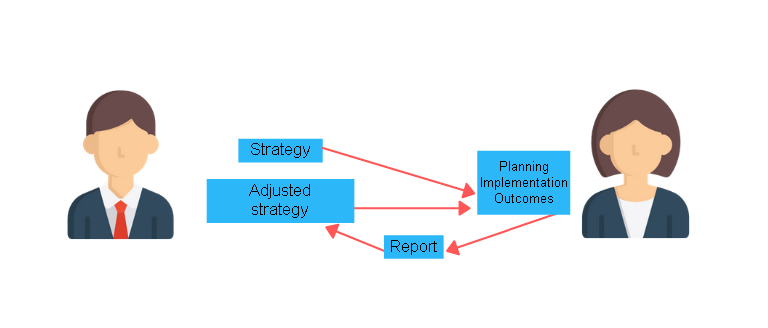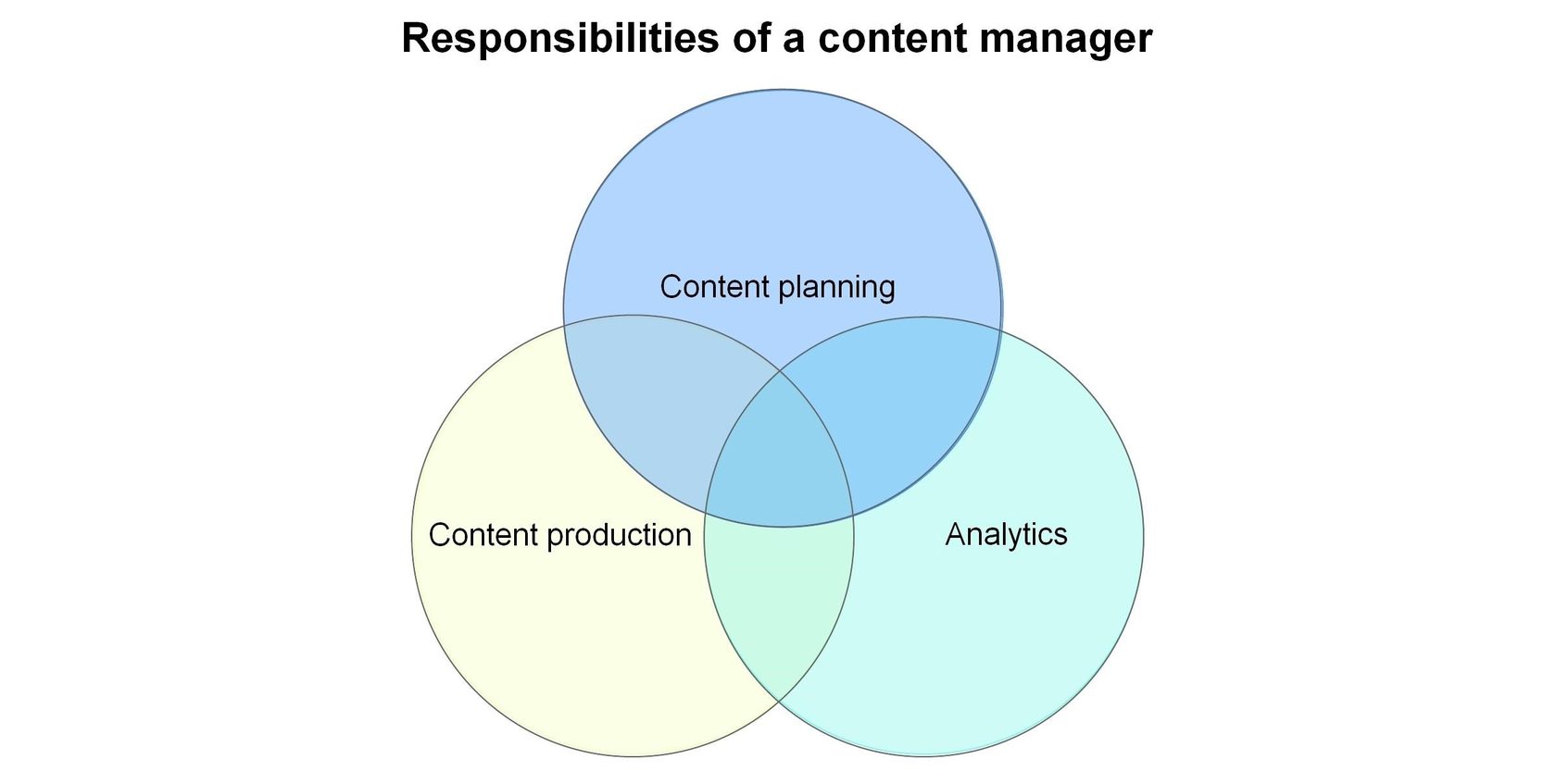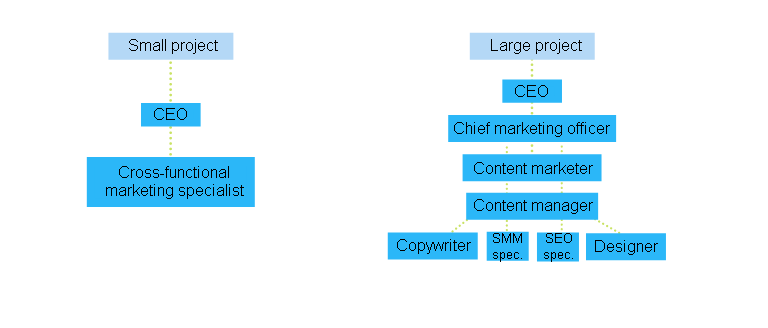Start Exploring Keyword Ideas
Use Serpstat to find the best keywords for your website
Who is a content manager and what do they do

— Try working as a content manager.
— Ok, Google. I have a feeling that employers generate job requirements with the help of a randomizer: one company hires people to work on their strategy, another one hires people to write articles, the third one only hires a content manager to fill out product cards on a website. Is it possible to have an adequate list of competencies of a content manager in order to finally understand whether it is worth spending my time in this industry?
— I have picked up an excellent article for you upon your request. Reading time: 12 minutes.
Who is a content manager
It is a content manager who decides what, where, when, and in what order will be published. The content manager is also called a content producer, content editor, content designer, content creator, and even a content project editor.


Why anyone can be called a content manager



By the way, filling out product cards is a necessary and important job for online stores. It also requires basic knowledge of SEO and principles of working with images. So such tasks can allow you to grasp the industry from scratch, figure out what is what, and then grow into a content manager in the broadest sense of the word.
What is the work of a content manager
All these processes drive traffic, which, as a result, should be converted into new leads and sales for the business.
Three areas of responsibility of a content manager

What does a content manager do during the week
Before you start writing texts and preparing visual materials, you need a plan. You need a content plan. Therefore, the primary task of a content manager from the planning side is to write down topics, headings, and subjects that need to be disclosed in the near future. The content plan is compiled according to the selected strategy.
With the plan on your hands, let's move on to content production.
The list of the content production manager tasks looks like this:
- to produce content according to the content plan independently or involving other people;
- to prepare technical requirement specifications for contractors and monitor the implementation of SEO, SMM, PPC and other tasks related to the content promotion (if a content manager manages the team and does not do it all independently);
- to supplement and update successful old articles on the website;
- to look for websites for seeding content (publications, forums) and publish interesting information there, share opinions, start threads, that is, do everything to verify the company's expertise;
- to communicate with customers in the comments, respond to their reviews;
- to handle negative feedback (if any);
- to build brand image.
Web analytics tools help you to measure performance and report on the work done.
The list of the content analytics manager tasks looks like this:
- to monitor the effectiveness of the work done: what touched your audience, in what topics your business has subsided;
- to track how articles on your website and external websites provide an increase in traffic and generate leads (using Google Analytics);
- to keep track of trends and competitors in your industry.
When the content is produced, promoted and analyzed, the content manager sends the report to the marketer so that in the future they can adjust the strategy.
Goals and KPIs of a content manager
Here are some examples of goals:
- to increase website traffic;
- to increase brand awareness and audience reach;
- to emphasize expertise and increase user loyalty;
- to generate more leads and sales.
If the created content does not help to achieve the goals, you need to change the content plan or the entire content strategy.
Despite the fact that the content goals may differ in various niches and at various stages of business development, the performance of a content manager can always be measured in numerical terms to move from meaningless "like/dislike" dialogs to more constructive "working/not working" ones.
Major KPIs of a content manager:
How to become a content manager
Working with a content plan
- to create a content plan according to the previously agreed content strategy;
- to be ready to deeply dive into a niche (content only sells if it is interesting, and writing interesting things about what you do not know is difficult);
- to understand that the content is not only blog articles, but also videos, emails, reviews, infographics, reviews, webinars, lectures, and much more.
Content production
- to write, rewrite, and copywrite (no, these are not synonyms);
- to be able to edit other people's texts;
- to have the basic skills of the text search engine optimization (writing titles, descriptions, h1, keywords; internal linking of pages, preparing the semantic kernel of a website);
- to work with graphic editors (ideally this is Photoshop, but at least Canva and Crello will be enough in the beginning);
- to edit videos (Movavi, Adobe Premier);
- to work with CMS (WordPress, Joomla, landing pages on Tilda and other popular engines);
- to supervise or perform SMM tasks (if there is no specially trained person for this position in the company).
Content analytics
- to analyze already created content, understand what touches your target audience and what does not, and in this regard, adjust the brand strategy together with the marketer;
- to be aware of the ultimate goal of content marketing (for example, in commercial projects: selling company products, not directly, but through your expertise; as for infotainment portals and websites, it is selling advertising posts);
- to control the work of other employees/contractors/freelancers.
Content manager and content marketer: is there a difference
In other words, the customer says what they want their brand to be in a year; the marketer thinks what needs to be done for this, the content manager decides how to do this and is engaged in the implementation of what is aligned.
To resolve marketing and content issues, small start-ups first hire content marketers who perform all the functions and, if necessary, address contractors; but the larger the project, the less the content marketer grasps the strategy implementation, and for these goals, start-ups hire content managers.

How to find a job in the sphere of content management
Try to choose a company where you understand the most what is required of a content manager. We have prepared 2 effective job search methods to help you to find your dream team.
The Basic method
The PRO method
What you need to do:
- find and join all communities related to job opportunities (Content writing jobs, Digital Marketing, Social Media Jobs and Internships, and many others);
- follow posts and updates, while upgrading professional skills and studying cases of your colleagues;
- write on your page that you are looking for a job and tell about yourself;
- respond to interesting job opportunities.
Alternative method:
- find companies you would like to work for;
- contact them personally, list your capabilities and skills; it may happen that a job is just opening up in a company, but the job opportunity is not public yet;
- subscribe to them and follow their updates. Companies often close job vacancies thanks to Facebook posts. Do not miss the opportunity.
Your Facebook page serves as your indirect resume. It's very good if you post something related to your profession.
Conclusion
Speed up your search marketing growth with Serpstat!
Keyword and backlink opportunities, competitors' online strategy, daily rankings and SEO-related issues.
A pack of tools for reducing your time on SEO tasks.
Discover More SEO Tools
Tools for Keywords
Keywords Research Tools – uncover untapped potential in your niche
Serpstat Features
SERP SEO Tool – the ultimate solution for website optimization
Keyword Difficulty Tool
Stay ahead of the competition and dominate your niche with our keywords difficulty tool
Check Page for SEO
On-page SEO checker – identify technical issues, optimize and drive more traffic to your website
Recommended posts
Cases, life hacks, researches, and useful articles
Don’t you have time to follow the news? No worries! Our editor will choose articles that will definitely help you with your work. Join our cozy community :)
By clicking the button, you agree to our privacy policy.

